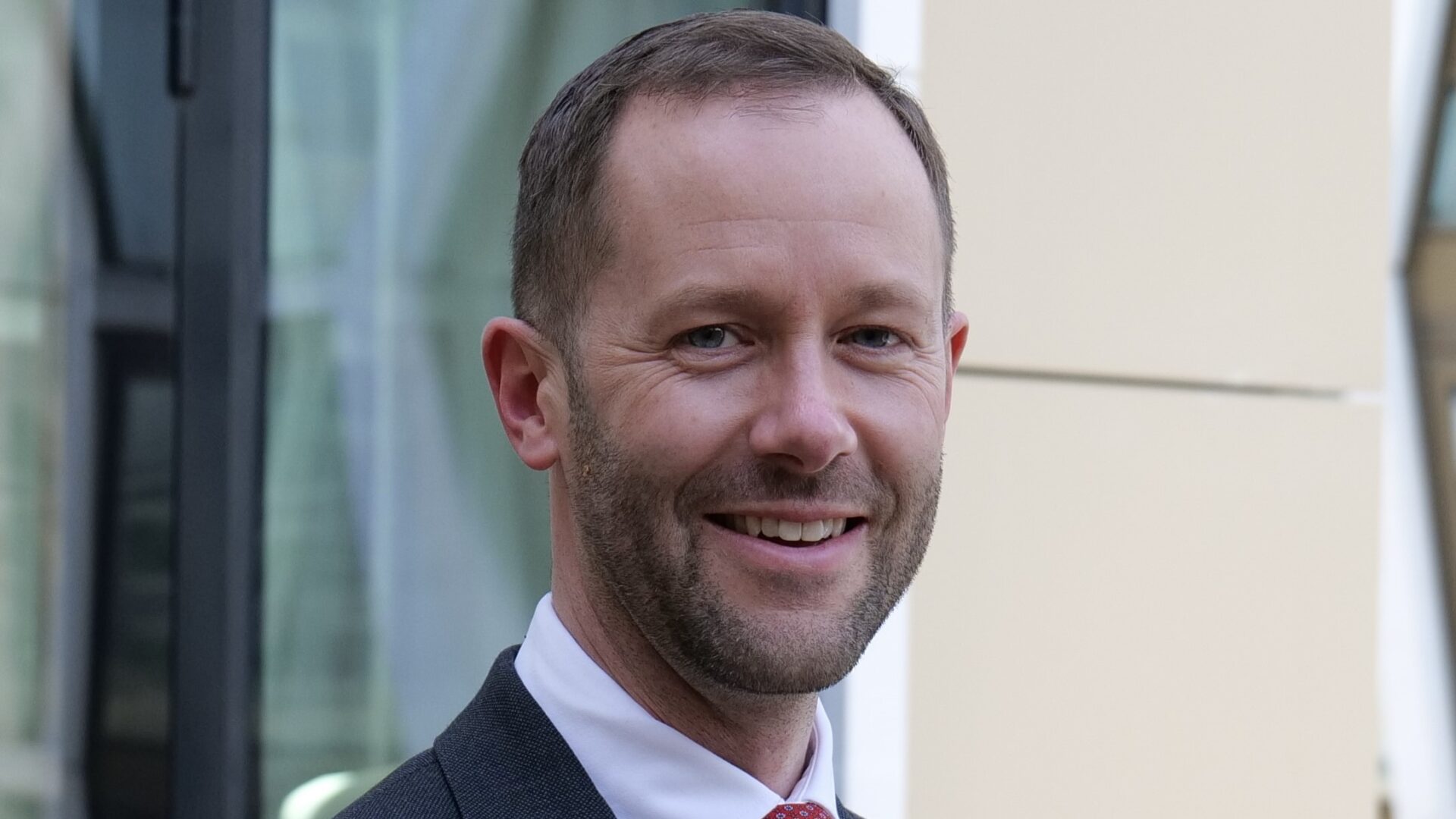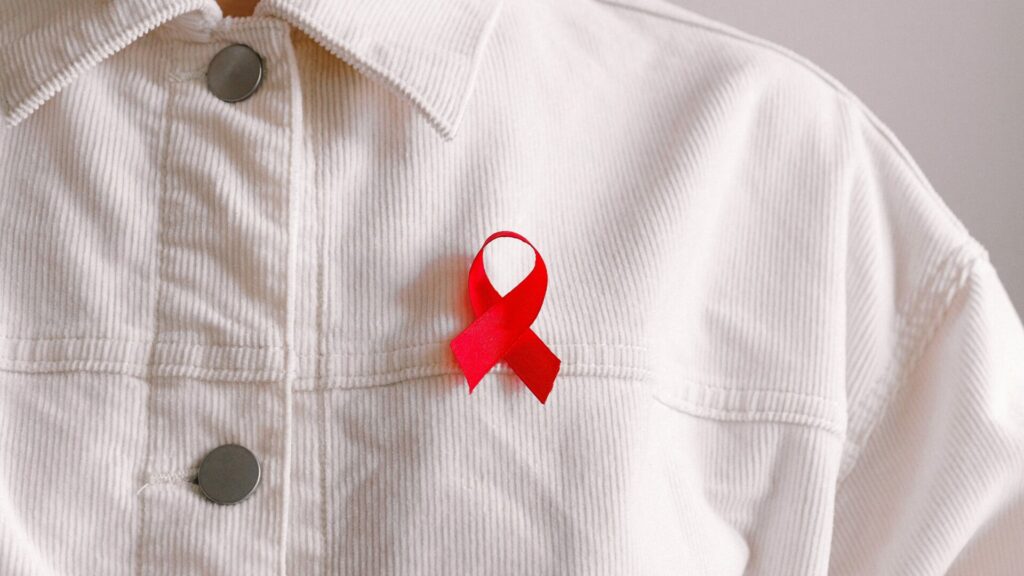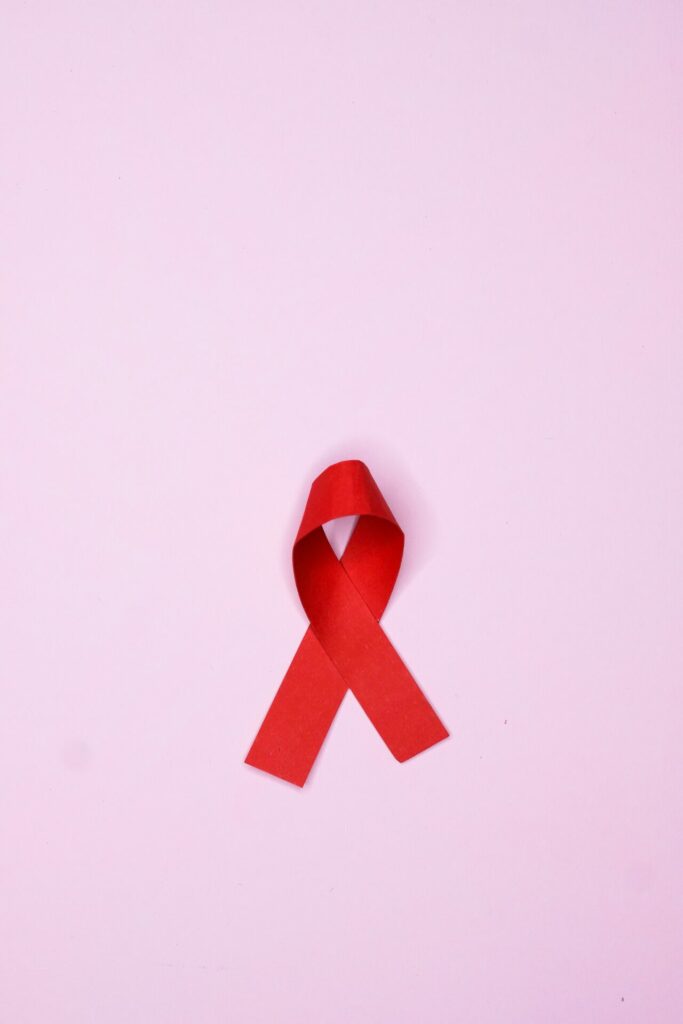Senior UK doctor ‘optimistic’ about reaching 2030 HIV goals
Exclusive: Dr. Thomas Waite addresses concerns that current targets for no new HIV diagnoses by 2030 won't be met.

The UK’s Deputy Chief Medical Officer for Health Protection has said he’s optimistic that current targets to prevent any new HIV diagnoses by 2030 will be met.
On Thursday (1 December) – World Aids Day – Dr. Thomas Waite spoke exclusively to Attitude in regard to the UK government’s HIV action plan, which was launched on World Aids Day in 2021.
In the year since Dr. Waite says there’s been “good progress” on achieving the aims of the plan, evidenced by news from NHS England on Wednesday (30 November) that 128 people have been diagnosed with HIV as a result of trials into opt-out blood tests in A&E units across the country.
He also addresses concerns about the impact that the Covid-19 pandemic and the mpox outbreak have had on eradicating HIV by 2030.

I wanted to start by getting your reaction to the news from NHS England yesterday about the number of new diagnoses of HIV as a result of the opt-out testing in some A&E departments across the country.
Testing is completely central to trying to drive down the number of new transmissions of HIV, which is in line with the action plan. And it’s really crucial for making progress. I think we’re 100 days into the implementation of opt-out testing in emergency departments in areas with the highest risk. There’s been over a quarter of a million HIV tests delivered, and over 100,000 Hepatitis C tests. And because of that, over 500 people with blood-borne viruses, including HIV and Hep C, who otherwise would not have known have been identified, and thus started treatment. That’s great progress and shows quite how central testing is to meet our goals.
Is the hope now that the trial will be expanded nationwide?
The selection of areas that we have at the moment, the areas with the very highest prevalence, were made in line with guidance from the National Institute for Health and Care Excellence (NICE) I think it’s very important that we go through, fully understand how effective this is, and learn from it before it’s rolled out elsewhere. But it does absolutely show the value of testing.
It’s been a year to the day since the Government published the HIV action plan. How would you describe the last year and what would you like to see happen next?
The action plan outlines all the actions that are needed across the health system. And that’s trying to get us towards zero new transmissions by 2030. The other thing that I just want to touch on though, is that 2030 is a long time away. What’s actually more important are the interim objectives for what we need to do between now and 2025. You need milestones to know what good progress you are making. And I think there are five things for me that are really important for getting there.
The first is making sure that where people are HIV-negative, they stay that way. And PrEP is completely central to that. We need to reduce undiagnosed HIV infection, and testing, which is a really important part of that. Then reducing the number of people who are living with transmissible levels of the virus. You and I know, but I don’t think it is well enough known, that undetectable viral loads mean that you cannot transmit HIV and allow people to live a completely normal life avoiding the impacts of HIV on them. Alongside that, you have to prevent comorbidities with people who are living with HIV, and really drive down on reducing stigma and improving quality of life.

We’ve seen figures out today from the Terrence Higgins Trust showing there is still stigma around HIV in the UK. I think we can all agree about the message of ‘undetectable equals untransmittable’. What more can be done to spread those messages and reduce stigma?
Reducing stigma is really important. I remember when I came out a family member, who meant well, said to me, ‘Does this mean you cannot be a doctor anymore?’ We’ve moved a long way from that. Society as a whole has made progress. But as you say there is still stigma. I think PrEP is a really important part of that and getting the message out about how effective medication is. We know that antiretroviral therapy will reduce the level of HIV in someone’s blood to undetectable levels and therefore people living with HIV who are treated and maintain an undetectable level even if they’re having sex without condoms cannot transmit HIV, that’s a really important part of making people understand what it’s like to live with HIV, but there is always more work to be done.
We’ve seen the expansion in testing and the results that have come from that. There are four key goals for the action plan, are you confident that enough progress will be made on those to achieve the 2025 and 2030 targets?
In order to be confident that we will meet those interim targets, we need to know what it is we’re measuring against. And the UK’s Health Security Agency (UKHSA) has published a monitoring and evaluation framework to make sure that everybody involved in the system can make that progress and can demonstrate that they’re making that progress. We know exactly the numbers that we need to reduce the number of diagnoses by, the number of people progressing to Aids, and the number of preventable deaths each year, basically, from here until then. That gives us a very realistic target. But it is no one single action, we need to make sure that everybody who needs PrEP has access to it. We know PrEP works, we need to make sure that those who are least able to access it have better access, we need to make sure that there is good access to testing, and that we’re meeting all of the other goals. You can’t do just one piece, you have to do it all.
Dr. Alison Brown, the interim head of HIV surveillance at the UKHSA has expressed concerns about the impact of Covid on eradicating HIV by 2030. Do you share those concerns?
Many parts of the health service were affected by not just the impact of Covid, but the impact of the response to Covid. We mustn’t let that get in the way, and I think the things that Alison was talking about were changes in the number of people being diagnosed, but also a drop in the number of people being tested. That’s important because it means that there will be undiagnosed HIV, and there will be people who would otherwise be able to get on to treatment more rapidly who do not know their HIV status. Opt-out testing is one part of that. We know that it [Covid] slowed progress in some areas, including among straight people. So we need to make sure that access to testing is there for all the groups who need it. And everybody understands the importance of testing.

There’s also concern about the impact that the mpox outbreak has had. Is there a concern there that those targets might be slipping given the impact of both COVID and then mpox?
I’d like to say thank you both to everybody working in the sexual health service during what has been an extraordinary year in terms of the amount of work that everybody has done, but also to everybody who came forward with mpox symptoms and to get vaccinated. We saw an incredible turnout of people coming forward for dose one, and now people are coming forward for dose two. That’s exactly the reason why we want people to come forward, that awareness of the importance of sexual health, and we mustn’t let outbreaks, which will happen of all sorts of different diseases in all sorts of different population areas, affect our progress.
Charities have warned that the HIV action plan isn’t as ambitious enough as it could be. Do you think those targets are realistic?
If we achieve the goals that have been set for 2030, which is zero new transmissions, we’d be the first country in the world to do that. That’s really very ambitious. And over the last three years, I think we’ve met the UN goals, which are to have at least 90 percent of people living with HIV diagnosed, 90 percent of those people who are diagnosed, getting onto treatment, and then the final and important bit, which is amongst those who are being treated, that they’re undetectable. So I think the goals are ambitious, and now the action absolutely has to support that.

Are you optimistic about reaching those goals?
Yes, I think we’re making good progress. But we’ve got to keep monitoring that and we’ve got to keep the action up. With any outbreak of any infectious disease sometimes you make enormous amounts of progress at first and the amount of effort you then have to make as numbers get lower and lower and lower, the efforts gets higher and higher and higher. That’s why we need short-term goals, and then to be continually reassessing those as we get closer to 2030, to find exactly where the really targeted action is needed. We’re not there yet. But I really hope that we get to that stage.
Do you have an idea of what the obstacles are going to be as it gets harder and harder?
One of the key areas that is challenging in any outbreak is getting the right information for people so they know what to do, and that this information is accessible to them and presented in the right way. And then slightly differently, but importantly, is making services accessible to people in a way that is useful for them. That will change depending on which groups we are trying to target over the coming years. Those are probably the two focus areas for me.
